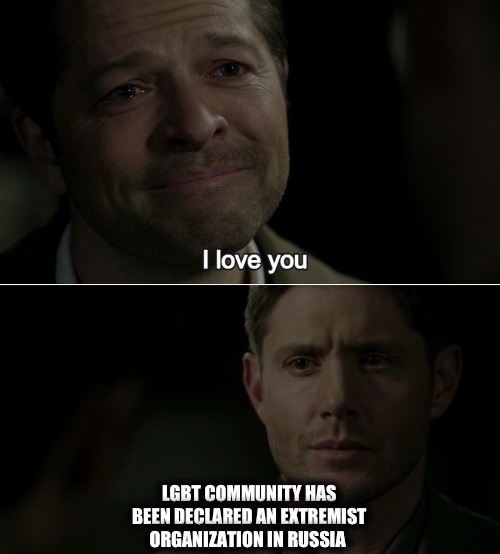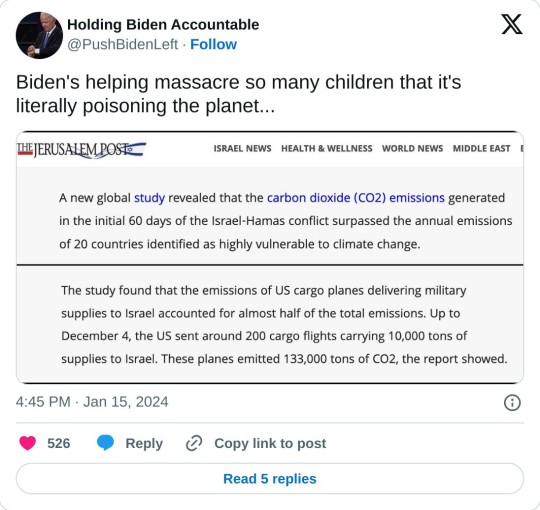#new and emerging
Explore tagged Tumblr posts
Text

#homeless#homeless people in edinburgh offered beds 250 miles away weeks after city declares housing emergency#homeless people#rent is theft#rent is too damn high#landlords are parasites#fuck landlords#landlords are scum#landlords are leeches#landlords are bastards#i’m a housing lawyer – landlords use new loophole to push out tenants in ‘bad faith’ evictions#landlords#i took my landlord to court over common rental problem that made my life hell and won $14#court dismisses assault on landlord and son who threw student out in his ‘jocks’ after no rent paid#we had to flee our home as it was invaded by mice & bedbugs – inspectors said it’s ‘deplorable’ but landlord won’t act#landlord#rental#rent#auspol#politas#ausgov#tasgov#taspol#australia#fuck neoliberals#neoliberal capitalism#anthony albanese#albanese government#eat the rich#eat the fucking rich
30K notes
·
View notes
Text
"With “green corridors” that mimic the natural forest, the Colombian city is driving down temperatures — and could become five degrees cooler over the next few decades.
In the face of a rapidly heating planet, the City of Eternal Spring — nicknamed so thanks to its year-round temperate climate — has found a way to keep its cool.
Previously, Medellín had undergone years of rapid urban expansion, which led to a severe urban heat island effect — raising temperatures in the city to significantly higher than in the surrounding suburban and rural areas. Roads and other concrete infrastructure absorb and maintain the sun’s heat for much longer than green infrastructure.
“Medellín grew at the expense of green spaces and vegetation,” says Pilar Vargas, a forest engineer working for City Hall. “We built and built and built. There wasn’t a lot of thought about the impact on the climate. It became obvious that had to change.”
Efforts began in 2016 under Medellín’s then mayor, Federico Gutiérrez (who, after completing one term in 2019, was re-elected at the end of 2023). The city launched a new approach to its urban development — one that focused on people and plants.
The $16.3 million initiative led to the creation of 30 Green Corridors along the city’s roads and waterways, improving or producing more than 70 hectares of green space, which includes 20 kilometers of shaded routes with cycle lanes and pedestrian paths.
These plant and tree-filled spaces — which connect all sorts of green areas such as the curb strips, squares, parks, vertical gardens, sidewalks, and even some of the seven hills that surround the city — produce fresh, cooling air in the face of urban heat. The corridors are also designed to mimic a natural forest with levels of low, medium and high plants, including native and tropical plants, bamboo grasses and palm trees.
Heat-trapping infrastructure like metro stations and bridges has also been greened as part of the project and government buildings have been adorned with green roofs and vertical gardens to beat the heat. The first of those was installed at Medellín’s City Hall, where nearly 100,000 plants and 12 species span the 1,810 square meter surface.
“It’s like urban acupuncture,” says Paula Zapata, advisor for Medellín at C40 Cities, a global network of about 100 of the world’s leading mayors. “The city is making these small interventions that together act to make a big impact.”
At the launch of the project, 120,000 individual plants and 12,500 trees were added to roads and parks across the city. By 2021, the figure had reached 2.5 million plants and 880,000 trees. Each has been carefully chosen to maximize their impact.
“The technical team thought a lot about the species used. They selected endemic ones that have a functional use,” explains Zapata.
The 72 species of plants and trees selected provide food for wildlife, help biodiversity to spread and fight air pollution. A study, for example, identified Mangifera indica as the best among six plant species found in Medellín at absorbing PM2.5 pollution — particulate matter that can cause asthma, bronchitis and heart disease — and surviving in polluted areas due to its “biochemical and biological mechanisms.”
And the urban planting continues to this day.
The groundwork is carried out by 150 citizen-gardeners like Pineda, who come from disadvantaged and minority backgrounds, with the support of 15 specialized forest engineers. Pineda is now the leader of a team of seven other gardeners who attend to corridors all across the city, shifting depending on the current priorities...
“I’m completely in favor of the corridors,” says [Victoria Perez, another citizen-gardener], who grew up in a poor suburb in the city of 2.5 million people. “It really improves the quality of life here.”
Wilmar Jesus, a 48-year-old Afro-Colombian farmer on his first day of the job, is pleased about the project’s possibilities for his own future. “I want to learn more and become better,” he says. “This gives me the opportunity to advance myself.”
The project’s wider impacts are like a breath of fresh air. Medellín’s temperatures fell by 2°C in the first three years of the program, and officials expect a further decrease of 4 to 5C over the next few decades, even taking into account climate change. In turn, City Hall says this will minimize the need for energy-intensive air conditioning...
In addition, the project has had a significant impact on air pollution. Between 2016 and 2019, the level of PM2.5 fell significantly, and in turn the city’s morbidity rate from acute respiratory infections decreased from 159.8 to 95.3 per 1,000 people [Note: That means the city's rate of people getting sick with lung/throat/respiratory infections.]
There’s also been a 34.6 percent rise in cycling in the city, likely due to the new bike paths built for the project, and biodiversity studies show that wildlife is coming back — one sample of five Green Corridors identified 30 different species of butterfly.
Other cities are already taking note. Bogotá and Barranquilla have adopted similar plans, among other Colombian cities, and last year São Paulo, Brazil, the largest city in South America, began expanding its corridors after launching them in 2022.
“For sure, Green Corridors could work in many other places,” says Zapata."
-via Reasons to Be Cheerful, March 4, 2024
#colombia#brazil#urban#urban landscape#urban planning#cities#civil engineering#green architecture#green spaces#urban heat#urban heat island effect#weather#meteorology#global warming#climate change#climate hope#climate optimism#climate emergency#climate action#environment#environmental news#city architecture#bicycling#native plants#biodiversity#good news#hope#solarpunk#ecopunk#hopepunk
18K notes
·
View notes
Photo


I feel like you and I got off on the wrong arm.
“They’re a weird, twisted family. Jinx is the daughter, and Sevika’s the weird aunt? They’re a weird unit, and there’s obviously a lot of jealousy and competition. But I do think that they have more in common than they have differences. That’s actually a really exciting relationship to come out of the second season.” — Ella Purnell (voice actor of Jinx)
#Arcane#League of Legends#arcaneedit#animationedit#loledit#Jinx#Sevika#*mine#this is hands down THE best dynamic to have emerged from season 2 so far!!!#like it was kinda unexpected but such a pleasant surprise to see this new relationship form between them
5K notes
·
View notes
Text


funky ceramic wizard staff + an update on how fucking LOUD the cicadas have gotten jesus christ
#like my ears are ringing when i go back inside lmao#my yard is full of cicadas its insane#u look up at the tree tops and theres cicadas absolutely everywhere its like biblical plagues waow#theres still some new ones emerging too#my dog is having a blast about it#i am too but for very different reasons#anyway#ceramics#wheel thrown pottery#(the bells are wheel thrown)#3d#sculpture
3K notes
·
View notes
Text

#destiel#trans#tumblr emergency alert system#destiel news#lgbt#lgbtqia#trans rights#trans genocide#russia
5K notes
·
View notes
Text
When President Joe Biden was asked if there’s any more resources that the federal government could be providing hurricane victims, he said:
“No. We’ve given them … a significant amount even though they didn’t — hadn’t — asked for it.”
This is fucking bullshit. People are homeless. People are dying. The government doesn’t care about Appalachia. It never has and never will unless we make enough noise. They gave Israel $8.7 billion while saying hurricane victims have enough money that we didn’t even ask for even though we’ve been BEGGING for help. They need to STOP funneling money into the Israeli death regime while their own countrymen fucking suffer and die under the boot of capitalism!!!!!! This country is fucked!!! They value Israel’s continued destruction of Palestine over their own people!!!!!!!!!!!! The lives of murders will always be more valuable to other murderers than innocent lives, no matter the country. Free Palestine, support Appalachia. Fuck the United States government.
#meposting#appalachia#palestine#free palestine#support palestine#israel#joe biden#hurricane helene#helene#hurricane#flooding#flood#floods#appalachian mountains#southeast usa#southern usa#florida#north carolina#tennessee#south carolina#georgia#virginia#usa#united states#news#2024#important#!!!#help#emergency
1K notes
·
View notes
Text
“Safe zone” was always a lie. I hope this is clear to everyone. “Evacuate to the safe zone” always meant “consolidate for slaughter” and that is exactly what is happening now
#anti genocide#free palestine#free gaza#jews for palestine#gaza genocide#palestine will be free#boycott israel#palestine genocide#current events#rafah#gaza news#palestine news#boycott divest sanction#genocide emergency#genocide#jewish antizionism#jews for ceasefire#from the river to the sea palestine will be free#ethnic cleansing
5K notes
·
View notes
Text

"Publishers accused the nonprofit of infringing copyrights in 127 books from authors like Malcolm Gladwell, C.S. Lewis, Toni Morrison, J.D. Salinger and Elie Wiesel, by making the books freely available through its Free Digital Library.
The archive, which hosts more than 3.2 million copies of copyrighted books on its website, contended that the library was transformative because it made lending more convenient and served the public interest by promoting "access to knowledge.""
source 1
source 2
source 3
#destiel meme news#destiel meme#news#united states#us news#world news#internet archive#copyright#copyright law#copyright infringement#bookblr#protect access to knowledge#wayback machine#learning is a right#hachette v internet archive#hachette book group#penguin random house#harpercollins#wiley#open library#national emergency library#fair use#controlled digital lending
1K notes
·
View notes
Text

#yemen#jerusalem#tel aviv#current events#palestine#free palestine#gaza#free gaza#news on gaza#palestine news#news update#war news#war on gaza#climate crisis#climate emergency#endisraelsgenocide#joe biden#gaza genocide
2K notes
·
View notes
Text
Danny Fenton, aka Phantom, has been given a new task!
In short, literally no one in the Ghost Zone/Infinite Realms wants their mostly peaceful afterlife to be rocked by a certain Gotham rogue named Joker. Which, when he dies, is almost sure to happen because of whatever the hell was in that vat he dropped in included ectoplasm. So, yay, he’s also a little ghostly too, meaning he *is* pretty hard to kill. Unfortunately, there’s also a certain vigilante that is quite keen to murder him in recent years.
So now Danny has to keep the mass murderer trauma clown alive for as long as he possibly can while attempting to keep the Joker from. Well. Being the Joker.
Oh, and naturally, Danny got this assignment AFTER Joker got out of Arkham. Again. And entirely blew up the asylum. Time to join the Goonion, he is NOT doing this without getting PAID, thank you.
#danny phantom#dpxdc#dp crossover#the idea is that Danny is now an. assistant? henchman? who will NOT let this man die but also can’t let him just put bombs everywhere#Danny’s search history is stuff like how do I give enrichment to a super villain so he doesn’t kill more people#it shockingly has results#there’s also possibly a ghostly court case bc some people who died DO want joker dead and are willing to re-kill him once he….#…. re-emerges as a ghost if that’s what it takes#danny is the MOST reluctant body guard#he’s using Psycho Babble! he’s using Jazz Fenton Language!#he hates it! he can strategize and such just fine but he’s really more of a…#… punch thing until it stops being a problem#sort of guy. percussive maintenance as his dad would say#he’s just there like#Hello Mr. Joker#have you considered NOT setting the orphanage on fire? there are better ways to get senpai to notice you#I heard flowers are nice. wait no do NOT call Poison Ivy-!#Danny is having a bad time. joker is having a time once he realizes Danny would rather not be here but is seemingly stuck#also joker maybe tried to kill him and it failed so he’s like#well. hm. that’s. not as new as it should be. have you met lord deathman?#the bats are trying to figure out this dynamic and failing miserably. they even call Harley and she’s like yeah no clue good luck tho
426 notes
·
View notes
Text



“Tell me about despair, yours, and I will tell you mine” -Mary Oliver, ‘Wild Geese’
#mary oliver#poems on tumblr#this is what makes us girls#girl blogger#girlhood#we were girls together#girl interrupted#just girly things#this is a girlblog#female hysteria#female insanity#female rage#it girl#girlblogging#hell is a teenage girl#tumblr girls#im just a girl#frida khalo#french new wave#female writers#joan baez#indiesleaze#girl interupted syndrome#emergency intercom#2016 tumblr#2014 grunge#frazzled english woman aesthetic
433 notes
·
View notes
Text
Just a reminder that in much of the northern hemisphere there is Good and Exciting Stuff to be found right now (early Summer) in your local ponds and waterways.
#salamander#newt#animals#wildlife#just good vibes tbh#Lissotriton#Lissotriton vulgaris#I keep telling my students to go out looking for all the tiny toadlets that are emerging from the water right now#yet they are stubbornly showing up to class every day as though they're not taking me seriously#what a privilege to get to behold such gentle and delicate creatures#just a few minutes' walk from my house#please go pond mucking#my wife and I take our son to this pond regularly and just spend some hours dipping and seeing what we see#I have been blown away by the diversity and richness#every time we go out I find something new and exciting#and my son gets closer and closer to falling in completely#but it is all part of it
972 notes
·
View notes
Text
No paywall version here.
"Two and a half years ago, when I was asked to help write the most authoritative report on climate change in the United States, I hesitated...
In the end, I said yes, but reluctantly. Frankly, I was sick of admonishing people about how bad things could get. Scientists have raised the alarm over and over again, and still the temperature rises. Extreme events like heat waves, floods and droughts are becoming more severe and frequent, exactly as we predicted they would. We were proved right. It didn’t seem to matter.
Our report, which was released on Tuesday, contains more dire warnings. There are plenty of new reasons for despair. Thanks to recent scientific advances, we can now link climate change to specific extreme weather disasters, and we have a better understanding of how the feedback loops in the climate system can make warming even worse. We can also now more confidently forecast catastrophic outcomes if global emissions continue on their current trajectory.
But to me, the most surprising new finding in the Fifth National Climate Assessment is this: There has been genuine progress, too.
I’m used to mind-boggling numbers, and there are many of them in this report. Human beings have put about 1.6 trillion tons of carbon in the atmosphere since the Industrial Revolution — more than the weight of every living thing on Earth combined. But as we wrote the report, I learned other, even more mind-boggling numbers. In the last decade, the cost of wind energy has declined by 70 percent and solar has declined 90 percent. Renewables now make up 80 percent of new electricity generation capacity. Our country’s greenhouse gas emissions are falling, even as our G.D.P. and population grow.
In the report, we were tasked with projecting future climate change. We showed what the United States would look like if the world warms by 2 degrees Celsius. It wasn’t a pretty picture: more heat waves, more uncomfortably hot nights, more downpours, more droughts. If greenhouse emissions continue to rise, we could reach that point in the next couple of decades. If they fall a little, maybe we can stave it off until the middle of the century. But our findings also offered a glimmer of hope: If emissions fall dramatically, as the report suggested they could, we may never reach 2 degrees Celsius at all.
For the first time in my career, I felt something strange: optimism.
And that simple realization was enough to convince me that releasing yet another climate report was worthwhile.
Something has changed in the United States, and not just the climate. State, local and tribal governments all around the country have begun to take action. Some politicians now actually campaign on climate change, instead of ignoring or lying about it. Congress passed federal climate legislation — something I’d long regarded as impossible — in 2022 as we turned in the first draft.
[Note: She's talking about the Inflation Reduction Act and the Infrastructure Act, which despite the names were the two biggest climate packages passed in US history. And their passage in mid 2022 was a big turning point: that's when, for the first time in decades, a lot of scientists started looking at the numbers - esp the ones that would come from the IRA's funding - and said "Wait, holy shit, we have an actual chance."]
And while the report stresses the urgency of limiting warming to prevent terrible risks, it has a new message, too: We can do this. We now know how to make the dramatic emissions cuts we’d need to limit warming, and it’s very possible to do this in a way that’s sustainable, healthy and fair.
The conversation has moved on, and the role of scientists has changed. We’re not just warning of danger anymore. We’re showing the way to safety.
I was wrong about those previous reports: They did matter, after all. While climate scientists were warning the world of disaster, a small army of scientists, engineers, policymakers and others were getting to work. These first responders have helped move us toward our climate goals. Our warnings did their job.
To limit global warming, we need many more people to get on board... We need to reach those who haven’t yet been moved by our warnings. I’m not talking about the fossil fuel industry here; nor do I particularly care about winning over the small but noisy group of committed climate deniers. But I believe we can reach the many people whose eyes glaze over when they hear yet another dire warning or see another report like the one we just published.
The reason is that now, we have a better story to tell. The evidence is clear: Responding to climate change will not only create a better world for our children and grandchildren, but it will also make the world better for us right now.
Eliminating the sources of greenhouse gas emissions will make our air and water cleaner, our economy stronger and our quality of life better. It could save hundreds of thousands or even millions of lives across the country through air quality benefits alone. Using land more wisely can both limit climate change and protect biodiversity. Climate change most strongly affects communities that get a raw deal in our society: people with low incomes, people of color, children and the elderly. And climate action can be an opportunity to redress legacies of racism, neglect and injustice.
I could still tell you scary stories about a future ravaged by climate change, and they’d be true, at least on the trajectory we’re currently on. But it’s also true that we have a once-in-human-history chance not only to prevent the worst effects but also to make the world better right now. It would be a shame to squander this opportunity. So I don’t just want to talk about the problems anymore. I want to talk about the solutions. Consider this your last warning from me."
-via New York Times. Opinion essay by leading climate scientist Kate Marvel. November 18, 2023.
#WE CAN DO THIS#I SO TRULY BELIEVE THAT WE CAN DO THIS#WE CAN SAVE OURSELVES AND THE WORLD ALONG WITH US#climate crisis#united states#climate change#conservation#hope posting#sustainability#climate news#climate action#climate emergency#fossil fuels#global warming#environmentalism#climate hope#solarpunk#climate optimism#climate policy#earth#science#climate science#meteorology#extreme weather#renewable energy#solar power#wind power#renewables#carbon emissions#climate justice
33K notes
·
View notes
Text
URGENT!!!
@shaimaafamily3 has a daughter, Juri, who is in hospital in critical condition! She desperately needs to pay for medicine and for her daughter to have an operation on her leg, along with medical expenses. There has only been one donation in the last 24 hours; they need our help! Please, even €1 will be a step towards Juri getting this operation. If you cannot donate, please share their campaign with everyone you know and make your own posts so this little girl can get the treatment she needs!
#urgent#emergency#mutual aid#important#palestine donation#free gaza#free palestine#gaza fundraiser#palestine#palestine fundraiser#gaza#palestine gfm#palestine will be free#palestine gofundme#palestine genocide#all eyes on palestine#palestinian genocide#support palestine#save palestine#palestine news#i stand with palestine#gaza gfm#gaza gofundme#gaza genocide#help gaza#gaza strip#save gaza
301 notes
·
View notes
Text
Applying a conservative estimate of four indirect deaths per one direct death9 to the 37 396 deaths reported, it is not implausible to estimate that up to 186 000 or even more deaths could be attributable to the current conflict in Gaza. Using the 2022 Gaza Strip population estimate of 2 375 259, this would translate to 7·9% of the total population in the Gaza Strip
(Source: The Lancet)
The Lancet is one of the oldest and highest impact peer-reviewed medical journals in the world. Deliberate undercounting of deaths is a key feature of genocides.
The Electronic Intifada estimated it at 193,000 a few days before.
The reported number of martyrs on Wednesday this week was 37,718. It’s important to note that this number only includes martyrs who have been identified by name and civil ID number through the beleaguered health ministry in Gaza. Given the breakdown of reporting systems due to heavy destruction of infrastructure and personnel, this number, even with its limited parameters, is a gross underestimation. Based on more accurate figures of approximately 370 people killed daily, multiplied by 264 days of genocide, the actual number is closer to 97,680 martyred. (Per OCHA estimate of 15 martyrs per hour: Over the course of 264 days, which amounts to 6,336 hours, this number would roughly be 95,040).
...
Based on these estimates, both conservative and data-driven, respectively, the actual figures are likely as follows: • 377,280 buildings destroyed completely or partially • 95,040—97,680 martyred • 221,760 injured • 24,750 dead or dying from starvation • 42,000 missing (presumed dead, kidnapped by Israel’s occupying forces or possibly trafficked). The following ranges represent conservative estimate or lower range of data-driven population estimates: • 17,050—94,049 with chronic illnesses dead from lack of medication • 14,408—255,985 dead from epidemics resulting from Israel’s assault This means the actual number of dead is closer to 194,768—511,824 people, with 221,760 injured. And counting.
(Source: The Electronic Intifada)
Israel surrounded the last remaining hospital in the Gaza Strip with tanks and ordered it evacuated and shut down 12 hours ago.
If you still want to believe the pussy-footing toll of counted and reported deaths that can stand up to Western propaganda, after nine fucking months of dropping more than 70,000 tons of bombs on a 41 kilometer strip, exceeding World War II bombings in Dresden, Hamburg, London combined, rather than the statistical breakdown of humanitarian orgs and medical journals, then have at. There's no point telling you to believe the victims and question your own biases towards your own heavily propagandized establishments.
But if you can do basic math, then please use The Lancet's estimated death toll. The massacre of 8% of the Gaza Strip is a conservative estimate and still apocalyptic. Resist all attempts to diminish it. Remember that this is the result of the United States's obstruction of justice and open-handed abetting of genocidaires. Keep fighting.
Btw:
While the war itself is estimated to have generated between 420,265 and 652,552 tonnes of carbon dioxide equivalent (CO2e) so far—equivalent to burning more than 1.5 million barrels of oil—this figure soars to more than 61 million tonnes when pre-and post-war construction and reconstruction are included. This is more than the annual emissions of 135 individual nations—but there is currently no legal obligation for militaries to report or be held accountable for their emissions.
(Source: EuroNews)
#gaza genocide#palestinian genocide#free palestine#zionazis#i've been keeping out of the news but between the undercounting and shutting down gaza's last hospital#climate collapse#climate change#climate emergency#ecocide#death to israel#euro med monitor#electronic intifada#the lancet#knee of huss
683 notes
·
View notes
Text

Medieval Game Pieces Emerge From the Ruins of a German Castle
A small cache of medieval game pieces has been discovered in the ruins of a recently discovered castle in southern Germany. The finds provide a window into leisure time, possibly among actual knights, dating back nearly a millennium, approximately the time that chess arrived in Europe as an import from Asia.
The find includes a six-sided die, assorted game pieces including four in the shape of flowers, and a very well-preserved 1½-inch-high chess piece, all carved from antlers.
“In the Middle Ages, chess was one of the seven skills that a good knight should master,” said Jonathan Scheschkewitz, of the State Office for the Preservation of Monuments Baden-Württemberg. “It is therefore not surprising that known finds mostly come from castles.”
There is evidence that these are not just display objects, but pieces that were actually used. “Under the microscope,” explained Flavia Venditti of the University of Tübingen, “a typical sheen from holding and moving the pieces can be seen.”

An international team of experts from the University of Tübingen, the State Office for the Preservation of Monuments Baden-Württemberg and the German Archaeological Institute is now examining this evidence of early gaming culture.
“The discovery of an entire games collection [from] the 11th/12th century came as a complete surprise to us,” said Lukas Werther, of the German Archaeological Institute, “and the horse-shaped knight piece is a real highlight.”
The pieces came to light during excavations by the DFG Collaborative Research Centre 1070 Resource Cultures and the State Office for the Preservation of Monuments Baden-Württemberg in a previously unknown castle in the Reutlingen district of southern Germany’s Baden-Württemberg region.


“They were lying under the debris of a wall where they were lost or hidden in the Middle Ages,” said Michael Kienzle of the University of Tübingen. They are in such good condition, he added, precisely because they had been covered under those materials.
They will go on display this month in two exhibitions: “Excavated! Knights and Castles in the Echaz Valley” at the Schlössle Pfullingen (June 15–August 30) and “The Hidden Länd: We in the First Millennium” at the Archaologisches Landsmuseum Baden-Württemberg (September 13, 2024–January 26, 2025).

#Medieval Game Pieces Emerge From the Ruins of a German Castle#Germany’s Baden-Württemberg region#ancient artifacts#archeology#archeolgst#history#history news#ancient history#ancient culture#ancient civilizations#middle ages#medieval history#medieval art
429 notes
·
View notes